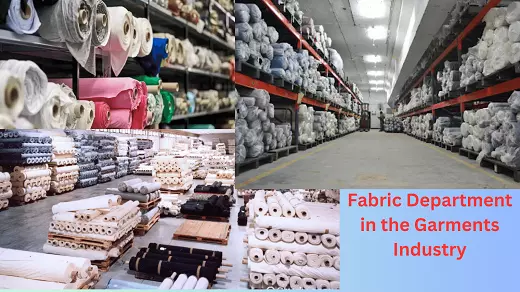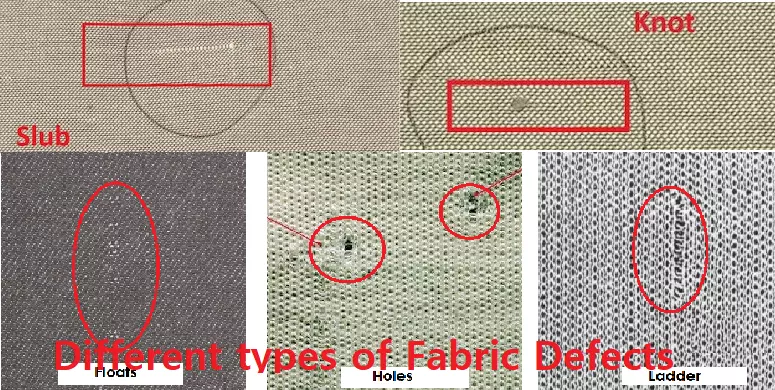The fabric store department within the garments industry plays a pivotal role in the production process, serving as the cornerstone for creating quality Garment clothing and textile products. This department operates as the nucleus where raw materials are acquired, managed, and distributed across various stages of production. Here, we delve into the significant functions performed by the fabric store department, elucidating its indispensable role in the garment manufacturing process. In this article, we will discuss the Functions of the Fabric Department in the Garments Industry.
The fabric department does not produce fabric in the garment industry, as the garment industry produces garments. So they have to source material from the textile mill, receive fabric, store it properly, do a physical inventory, do a quality inspection, and issue cloth to the cutting section for the operation. A fabric warehouse is where we organize the main raw material for the garment industry.

6 Functions of the Fabric Department in the Garments Industry
1. Sourcing and Procurement
The primary function of the fabric store department is the acquisition of raw materials—fabrics, textiles, and other essential materials necessary for garment production. This involves sourcing materials from different suppliers, negotiating prices, and ensuring timely procurement to meet production schedules. They meticulously analyze the quality, composition, and suitability of fabrics to align with the specific requirements of the garments to be manufactured.
2. Inventory Management:
Efficient inventory management is crucial in the fabric department. It involves maintaining accurate records of available materials, monitoring stock levels, and organizing inventory in a manner that facilitates easy access and retrieval. To prevent stockouts or overstock situations, the department must employ robust inventory control measures and forecasting techniques to optimize material availability while minimizing storage costs.
3. Quality Control:
Ensuring the quality of fabrics is a cornerstone function of the fabric store department. They conduct rigorous quality checks upon receiving materials to guarantee they meet predetermined standards. This involves assessing factors such as fabric strength, colorfastness, shrinkage, texture, and overall durability. Rejecting subpar materials and maintaining stringent quality control measures are imperative to uphold the final product’s quality.
4. Issuing and Distribution of Fabric Department in Garment
Upon approval, the fabric store department is responsible for issuing materials to the production units based on requisitions. They must accurately allocate the right quantity and type of fabric to different departments or workstations in adherence to the production schedule. Timely and precise distribution ensures uninterrupted workflow and prevents delays in the manufacturing process.
5. Record-keeping and Documentation:
Documenting every aspect of fabric procurement, storage, and distribution is crucial. The department maintains detailed records of suppliers, purchase orders, material receipts, stock levels, and issuances. These records aid in inventory tracking, identifying trends, and making informed decisions regarding future purchases and material utilization.
6. Collaboration and Communication:
Seamless collaboration between the fabric store department and other departments—such as design, production, and quality assurance—is vital. Constant communication ensures that fabric specifications, changes in requirements, or quality concerns are effectively conveyed and addressed, minimizing errors and optimizing efficiency.
Conclusion
In conclusion, the fabric store department within the garments industry serves as the linchpin that sustains the production cycle. Its multifaceted functions, from procurement to quality control and distribution, significantly influence the final product’s quality, timely delivery, and overall success of the garments manufacturing process. A well-organized and efficient fabric store department is essential for the industry’s competitiveness, ensuring that the garments produced meet consumer expectations and industry standards.


